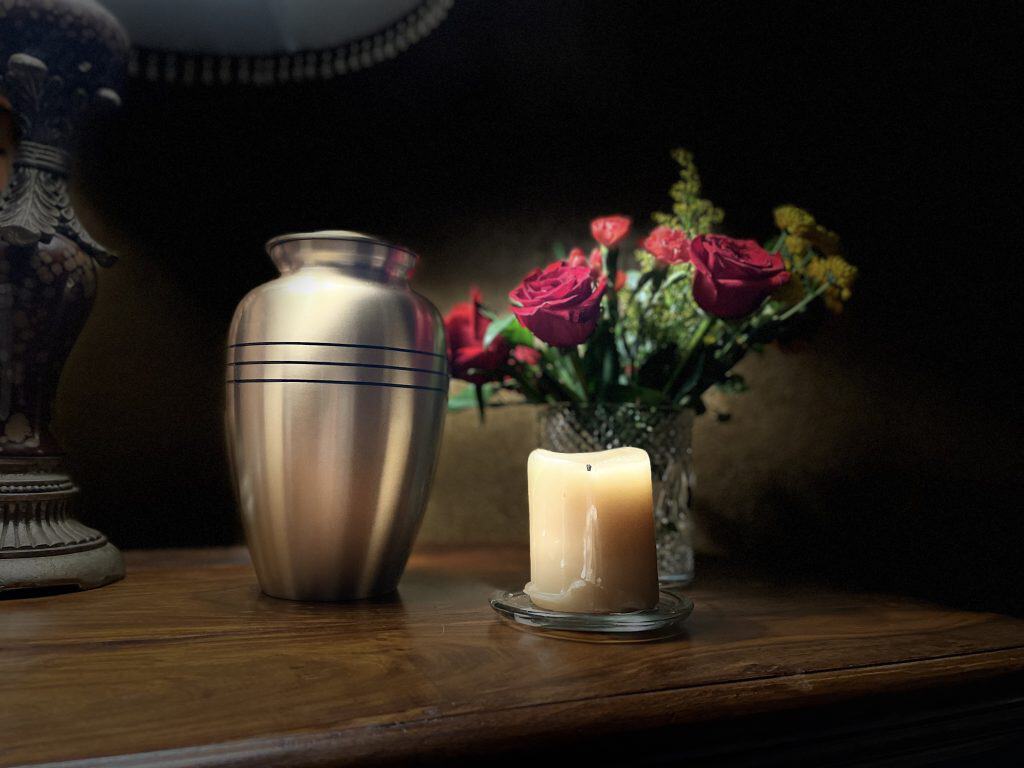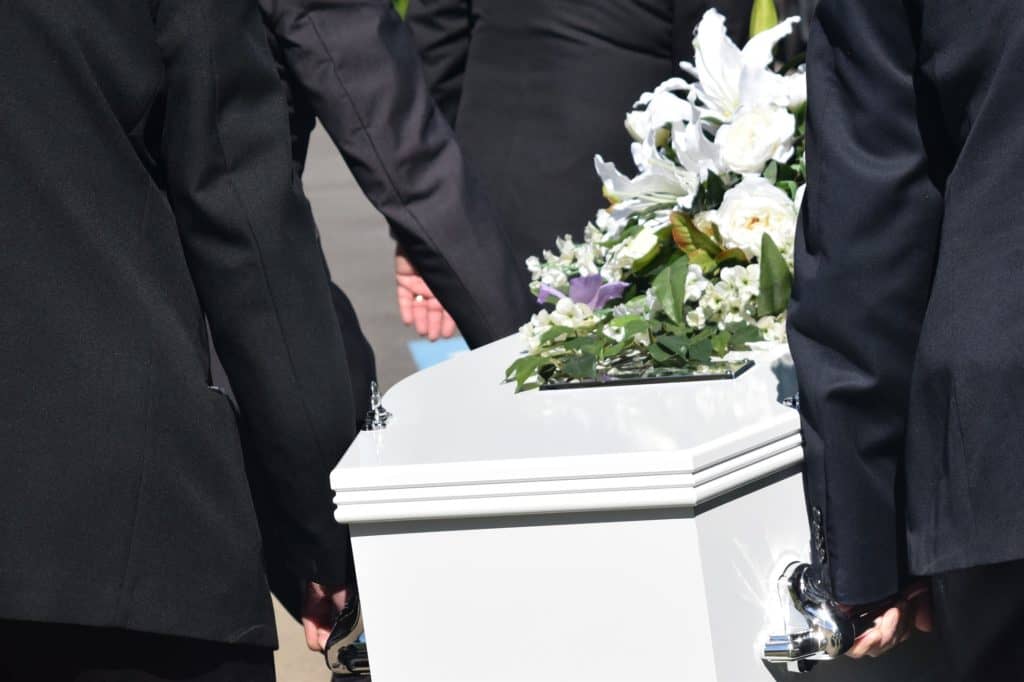This guide aims to answer some key questions about making funeral or cremation arrangements in Michigan. We provide an overview of some legal aspects of making funeral plans specific to Michigan funeral laws and what funeral or cremation costs to expect.

The most important thing is to understand what is available to you, and what your rights are as a consumer. Purchasing funeral products and services is legislated much like any other consumer industry. But be alerted to the fact that this IS an industry where state regulations can vary from federal legislation, and an industry that has been known to prey on the vulnerable in the name of profit. The death care industry is worth billions, and for decades we have been lured into spending unnecessarily on many aspects of death care.
How do you choose which funeral home or cremation provider is right for your needs in Michigan?
This is the probably your starting point – choosing who should be your funeral director. Michigan is only one of 8 states that does not allow residents to handle the disposition of their deceased if they so wished. Michigan law actually requires a family to purchase the services of a funeral director, even if you would prefer to manage the death care of your loved one at home.
Michigan is also the ONLY state that requires a funeral director to certify a death certificate. According to the Public Health Code 333.2843(3) “a death record shall be certified by a funeral director licensed to practice mortuary science in this state”. This also means that if your loved one has died in a hospital or a nursing home, they will only release the deceased into the direct care of a funeral director. So whatever you decide, you will have to enlist at least the basic services of a licensed funeral director.
Deciding which funeral provider is right for your needs is largely determined by what type of services you require, your location and your finances. Some funeral homes offer a full range of services from basic services, to ‘green’ alternatives, or full elaborate traditional funerals. Other funeral homes will specialize in a particular aspect of funeral care, such the simple, affordable options, or ‘life celebration’ and alternative funeral options. There are even a number of specialized cremation providers these days that only offer cremation choices. You firstly need to decide what services you want, as this will help you to narrow down your selection of providers. If cost is very much a determining factor, you will most likely want to consider cremation. This is by far your cheapest option for a funeral in Michigan. We discuss more about your options for cremation below.

Who has responsibility to make decisions regarding funeral arrangements?
The next of kin will usually take responsibility for making the funeral arrangements. Legally it falls into a hierarchy of: spouse, children, siblings, nephew/niece, grandparent, aunt/uncle, cousin, legal representative as appointed in a will, guardian, Medical Examiner. If there is any disagreement about funeral arrangements, it can be legally determined by the hierarchy of responsibility.
How do I find a funeral home or cremation provider in Michigan?
You have arrived at US Funerals Online because you were searching online for some funeral or cremation information. This page aims to help arm you with some basic tips and facts about funerals and cremations in Michigan to help you find the provider that is right for you. Our funeral home directory lists ALL funeral homes and cremation providers by city and in zip code order. This is to help make it easy for you to see and find the providers nearest to you. If you want to locate your nearest, cheapest cremation provider – you should visit DFS Memorials. We have an alliance with DFS Memorials, as we believe all residents of Michigan should be entitled to have a low-cost cremation provided by a local, family-owned funeral company.

Do you want a burial or cremation in Michigan?
This is a personal choice. These days it is becoming more dictated by cost. A burial will cost you far more than a cremation, so many are turning to cremation as a cheaper alternative. If you opt for a burial you may need such things as a casket, a cemetery plot, a grave liner, a vault and a headstone. These all have expensive price tags.
The cremation rate in Michigan is around 40%, which is about the same of the national rate. Cremation is gaining in popularity though, and as mentioned above this is partly about cost, but is also because our attitudes towards religious beliefs and death rituals are changing. You must decide what is right for you, and/or what the deceased’s wishes were.
What is the cost of a funeral or cremation in Michigan?
This is one of the main reasons many people get online and start researching funerals these days. They want to know how much a funeral or cremation costs in Michigan. Unfortunately, it is not a simple answer, as the truthful answer is that prices for funeral services and products can vary tremendously between different providers and in different areas. It is very difficult to quote a ‘standard’ price. It is that “how long is a piece of string” type of question.
If you are concerned about funeral costs, the DFS Memorials providers in Michigan offer low cost cremation services and affordable burial services. All DFS Memorials providers guarantee to offer a ‘best value’ direct cremation package.
Is embalming required in Michigan?
State law does not require embalming. However, Michigan law does not require temperature reduction as an alternative to embalming. Therefore, according to state laws the final disposition of the deceased must be conducted within 48 hours, whether this is a burial or cremation. A funeral home cannot tell you that the law says you must have the deceased embalmed, but they can have a practice that states embalming is required by their establishment if the deceased is to remain there in excess of 48 hours. Many funeral directors will recommend embalming if a viewing or open-casket service is requested. Do not feel obligated to undertake this if you intend to have a service immediately. Embalming does not prevent natural decomposition.
Can we conduct a ‘home funeral’ in Michigan?
Yes, although you will still have to use the services of a funeral director to file the death certificate, supervise the disposition, and obtain a cremation permit and a burial transit permit. However, you may still prepare your loved one personally and transport the body in your own vehicle. The funeral director who is contracted to oversee the disposition, may wish to meet with you at the cemetery or crematory to check that the final place of disposition is as stated on the death certificate. It is legal to bury a loved one on your own land but you must obtain the zoning approval and a permit from the local public health department. This is not always as straightforward as it should be, and there are certain restrictions to do with acreage, proximity to neighbours and wells and taxation.

What are my options for purchasing a casket or alternative container?
There is no Michigan law that states you must have a casket for a cremation or a simple burial. However, all crematories will require that a suitable combustible container is used. Most cemeteries will insist that a rigid container is used for a burial, but this can be a basic wood or cardboard container. You do have the right to purchase a casket from a third-party casket seller, and your funeral home must accept it without any surcharge. This was introduced by the Federal Trade Commission’s (FTC) ‘funeral rule’, and specifically to prevent consumers from being pressurized to purchase caskets direct from funeral homes at huge mark-ups. A funeral home must now provide you with a Casket Price List when discussing, or showing you, caskets for sale. The introduction of the funeral rule opened up a whole market in discounted casket sales, and you can sometimes save significantly by purchasing from a casket retailer. It is always wise to ensure you are dealing with a reputable retailer, but this does now mean that a standard casket can be purchased for around $995.
What are burial and cemetery plot requirements in Michigan?
There is no state law that requires you to have a burial vault or outer burial container, but most cemeteries have regulations that require you to have one. You should always fully check cemetery regulations before committing to a cemetery plot, as they usually have a number of rules that stipulate about such things as grave liners, grave markers and maintenance. Cemeteries require vaults to help prevent subsidence, and especially where heavy machinery is used for mowing and maintenance.
Can I pre-plan a funeral or cremation in Michigan? How does state law govern preneed plans?
Yes, you can pre-plan a funeral or cremation in Michigan. In fact, it is a good way to ensure your wishes are observed and the finances are earmarked. These days with more people struggling to make their retirement savings last through their senior care years, it can be a means to ensure you have allocated funds for death care. Funds put into a funeral insurance plan are not taken into account when you are means-assessed for aid.
In Michigan licensed third party sellers can sell preneed contracts. These contracts are funded through Escrow accounts. You should revisit and revise your contract every few years to ensure it still fully meets your needs. Do consider that funeral prices can, and are, changing quite significantly right now. In fact, more affordable options are coming on the market daily. Do make sure that family are aware that you have a plan, and where the details of it are kept.
The other option is to set up a payable-on-death (POD) account, otherwise known as a Totten Trust. You can deposit the funds required to cover your funeral expenses and make a member of your family the beneficiary who can withdraw the funds on your death. A benefit of this kind of trust is that it does not have to go through probate.

What are the laws for scattering ashes in Michigan?
It is legal to scatter ashes on private land in Michigan so long as you have permission of the landowner. Generally, you can scatter on public lands so long as you pay due diligence to common sense guidelines, but you should check whether there are any permits required for National Park lands. There are 79 state parks in Michigan so just check with the ordnance of the park before proceeding. Some parks require a permit but do not charge for it.
It is also legal to scatter ashes over water in Michigan, and being situated in the Great lakes area, this is a popular choice for those who wish to scatter ashes. Lake Michigan, Lake Huron, Lake Superior and Lake St. Clair make a beautiful location to carry out a water dispersal scattering ceremony. The Clean Water Act by the Environmental Protection Agency is the legislation that governs inland waters. As cremated remains are not considered a pollutant and are sterile, there seems to be no specific legislation against them being dispersed in the lakes, so long as the ashes are dispersed into the water, or a biodegradable urn/scattering tube is used. Make sure any petals or flowers or wreaths that are used are also fully degradable with no plastic or metal ties. Michigan is within Region 5 of the EPA and their main contact number is 312-353-2000.

What help is available with funeral expenses in Michigan?
In Michigan the State Emergency Relief (SER) program funded by the Department of Human Services can provide financial assistance with burial or cremation expenses if the deceased, or their family, is needy and cannot afford a funeral. The family must complete an application at the Human Services office in their county within 10 days of the burial, cremation or donation. SER will pay $455 for the expense of a funeral director and a simple memorial service, $145 for the cremation or cemetery cost, and $100 towards the cost of a burial vault. For a direct cremation or direct burial, SER will pay $220 for the funeral director’s fees and the same amounts as above for the crematory or cemetery. For a body donation within Michigan, the SER will pay 32 cents per mile for transportation up to $176. For an infant or foetus death (under 1 month old) SER pay $100 towards the funeral director’s fee and $45 for a crematory or cemetery charge.
The deceased’s family may still receive donations of up to $4,000 from friends and family and still claim assistance, unless the total amount required for the funeral is covered by donations. There are other forms of support available such as veteran’s benefits, insurance premiums and social security benefits, and SER will evaluate these options before paying out any claim. [These figures were the prices quoted at the time of publishing in September 2012 and can vary depending on individual circumstances & available funds. To check up-to-date figures visit Michigan Department of Health and Human Services.
Are whole-body donations permitted in Michigan?
Yes, you may donate your body to medical research in Michigan. There are three body donation programs in the state:
- Wayne State University Body Bequest Program – in most cases the deceased is collected/accepted at no charge to the family
- Michigan State University Willed Body Program & University of Michigan Anatomical Donations Program – both require that all transfers be handled by a licensed funeral home. The costs for this depend upon the funeral home used, but range from $550 to $1,950.
You should consider that whilst body donation is a very ethical and practical end-of-life choice, you must understand that a donation is not always accepted, and it can take some time before the cremated remains are returned to the family.
US Funerals Online is affiliated with Medcure who offer an anatomical donation program nationwide with a no cost cremation, and returning the cremated remains to the family. Visit our Body Donation page to find out more.
What do you do if your loved one dies away from Michigan?
As we move around more, people are sometimes passing away whilst away from Michigan, and family want to bring them home for a funeral. The costs to ship a body, either domestically or internationally, are expensive and can significantly add to your overall funeral expenses. In many cases it may be easier and cheaper to arrange a direct cremation at the place of death and conduct a service once the cremated remains arrive back in Michigan. To understand more about funeral shipping, or to speak with a mortuary shipping adviser, visit our page on ‘dealing with a death away from home’.
If you do regularly travel for work, pleasure, sport, visiting family, or snow-birding, you may wish to consider our great value Travel Protection Plan. This plan costs just $450 for an individual for lifetime protection against the costly expense of returning a body home if a death occurs 75 miles (or further) from your residence. It also provides global coverage. Domestic funeral shipping can cost from $3,000, and International repatriation can start at around $6,900.
Where do I get a copy of a death certificate from in Michigan?
The Michigan Office of Vital Records is at 201 Townsend St, Capitol View Building, 3rd Floor, Lansing, MI 48913. You can obtain a copy of a death certificate in person, online or by mail. If you visit in person, they are open 8am – 5pm but a request for a certificate must be received by 3pm for a same day service. A copy of a death certificate costs $36.00 for the first copy and $12.00 for each additional copy. If requesting by mail or online there are additional charges.
What should you do if you have a complaint about funeral or cremation services or products you have purchased?
If you should have a complaint or grievance regarding services or products purchased from a licensed funeral provider in Michigan, you can make a written complaint to:
Michigan Department of Labor & Economic Growth
BCS/Enforcement Division
P O Box 30018
Lansing MI 48909
You can also contact the Michigan Funeral Consumers Information Society (FCIS). They are a volunteer, not-for-profit organization affiliated with the Funeral Consumers Alliance that is dedicated to serving the rights of consumers in the death care sector.
Michigan Funeral Consumers Information Society
P.O. Box 24054
Detroit, MI 48224
Resources:


